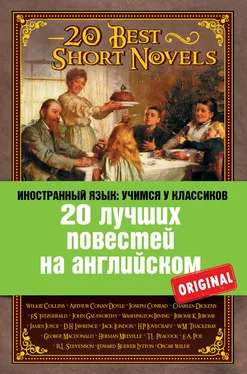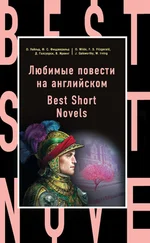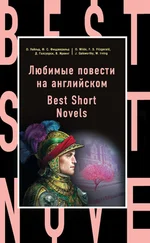Night came on, and a full moon rose high over the trees into the sky, lighting the land till it lay bathed in ghostly day. And with the coming of the night, brooding and mourning by the pool, Buck became alive to a stirring of the new life in the forest other than that which the Yeehats had made, He stood up, listening and scenting. From far away drifted a faint, sharp yelp, followed by a chorus of similar sharp yelps. As the moments passed the yelps grew closer and louder. Again Buck knew them as things heard in that other world which persisted in his memory. He walked to the centre of the open space and listened. It was the call, the many-noted call, sounding more luringly and compellingly than ever before. And as never before, he was ready to obey. John Thornton was dead. The last tie was broken. Man and the claims of man no longer bound him.
Hunting their living meat, as the Yeehats were hunting it, on the flanks of the migrating moose, the wolf pack had at last crossed over from the land of streams and timber and invaded Buck’s valley. Into the clearing where the moonlight streamed, they poured in a silvery flood; and in the centre of the clearing stood Buck, motionless as a statue, waiting their coming. They were awed, so still and large he stood, and a moment’s pause fell, till the boldest one leaped straight for him. Like a flash Buck struck, breaking the neck. Then he stood, without movement, as before, the stricken wolf rolling in agony behind him. Three others tried it in sharp succession; and one after the other they drew back, streaming blood from slashed throats or shoulders.
This was sufficient to fling the whole pack forward, pell-mell, crowded together, blocked and confused by its eagerness to pull down the prey. Buck’s marvellous quickness and agility stood him in good stead. Pivoting on his hind legs, and snapping and gashing, he was everywhere at once, presenting a front which was apparently unbroken so swiftly did he whirl and guard from side to side. But to prevent them from getting behind him, he was forced back, down past the pool and into the creek bed, till he brought up against a high gravel bank. He worked along to a right angle in the bank which the men had made in the course of mining, and in this angle he came to bay, protected on three sides and with nothing to do but face the front.
And so well did he face it, that at the end of half an hour the wolves drew back discomfited. The tongues of all were out and lolling, the white fangs showing cruelly white in the moonlight. Some were lying down with heads raised and ears pricked forward; others stood on their feet, watching him; and still others were lapping water from the pool. One wolf, long and lean and gray, advanced cautiously, in a friendly manner, and Buck recognized the wild brother with whom he had run for a night and a day. He was whining softly, and, as Buck whined, they touched noses.
Then an old wolf, gaunt and battle-scarred, came forward. Buck writhed his lips into the preliminary of a snarl, but sniffed noses with him, Whereupon the old wolf sat down, pointed nose at the moon, and broke out the long wolf howl. The others sat down and howled. And now the call came to Buck in unmistakable accents. He, too, sat down and howled. This over, he came out of his angle and the pack crowded around him, sniffing in half-friendly, half-savage manner. The leaders lifted the yelp of the pack and sprang away into the woods. The wolves swung in behind, yelping in chorus. And Buck ran with them, side by side with the wild brother, yelping as he ran.
And here may well end the story of Buck. The years were not many when the Yeehats noted a change in the breed of timber wolves; for some were seen with splashes of brown on head and muzzle, and with a rift of white centring down the chest. But more remarkable than this, the Yeehats tell of a Ghost Dog that runs at the head of the pack. They are afraid of this Ghost Dog, for it has cunning greater than they, stealing from their camps in fierce winters, robbing their traps, slaying their dogs, and defying their bravest hunters.
Nay, the tale grows worse. Hunters there are who fail to return to the camp, and hunters there have been whom their tribesmen found with throats slashed cruelly open and with wolf prints about them in the snow greater than the prints of any wolf. Each fall, when the Yeehats follow the movement of the moose, there is a certain valley which they never enter. And women there are who become sad when the word goes over the fire of how the Evil Spirit came to select that valley for an abiding-place.
In the summers there is one visitor, however, to that valley, of which the Yeehats do not know. It is a great, gloriously coated wolf, like, and yet unlike, all other wolves. He crosses alone from the smiling timber land and comes down into an open space among the trees. Here a yellow stream flows from rotted moose-hide sacks and sinks into the ground, with long grasses growing through it and vegetable mould overrunning it and hiding its yellow from the sun; and here he muses for a time, howling once, long and mournfully, ere he departs.
But he is not always alone. When the long winter nights come on and the wolves follow their meat into the lower valleys, he may be seen running at the head of the pack through the pale moonlight or glimmering borealis, leaping gigantic above his fellows, his great throat a-bellow as he sings a song of the younger world, which is the song of the pack.
Howard Phillips Lovecraft
Herbert West – Reanimator
Of Herbert West, who was my friend in college and in after life, I can speak only with extreme terror. This terror is not due altogether to the sinister manner of his recent disappearance, but was engendered by the whole nature of his life-work, and first gained its acute form more than seventeen years ago, when we were in the third year of our course at the Miskatonic University Medical School in Arkham. While he was with me, the wonder and diabolism of his experiments fascinated me utterly, and I was his closest companion. Now that he is gone and the spell is broken, the actual fear is greater. Memories and possibilities are ever more hideous than realities.
The first horrible incident of our acquaintance was the greatest shock I ever experienced, and it is only with reluctance that I repeat it. As I have said, it happened when we were in the medical school where West had already made himself notorious through his wild theories on the nature of death and the possibility of overcoming it artificially. His views, which were widely ridiculed by the faculty and by his fellow-students, hinged on the essentially mechanistic nature of life; and concerned means for operating the organic machinery of mankind by calculated chemical action after the failure of natural processes. In his experiments with various animating solutions, he had killed and treated immense numbers of rabbits, guinea-pigs, cats, dogs, and monkeys, till he had become the prime nuisance of the college. Several times he had actually obtained signs of life in animals supposedly dead; in many cases violent signs but he soon saw that the perfection of his process, if indeed possible, would necessarily involve a lifetime of research. It likewise became clear that, since the same solution never worked alike on different organic species, he would require human subjects for further and more specialised progress. It was here that he first came into conflict with the college authorities, and was debarred from future experiments by no less a dignitary than the dean of the medical school himself – the learned and benevolent Dr. Allan Halsey, whose work in behalf of the stricken is recalled by every old resident of Arkham.
I had always been exceptionally tolerant of West’s pursuits, and we frequently discussed his theories, whose ramifications and corollaries were almost infinite. Holding with Haeckel [491]that all life is a chemical and physical process, and that the so-called ‘soul’ is a myth, my friend believed that artificial reanimation of the dead can depend only on the condition of the tissues; and that unless actual decomposition has set in, a corpse fully equipped with organs may with suitable measures be set going again in the peculiar fashion known as life. That the psychic or intellectual life might be impaired by the slight deterioration of sensitive brain-cells which even a short period of death would be apt to cause, West fully realised. It had at first been his hope to find a reagent which would restore vitality before the actual advent of death, and only repeated failures on animals had shewn him that the natural and artificial life-motions were incompatible. He then sought extreme freshness in his specimens, injecting his solutions into the blood immediately after the extinction of life. It was this circumstance which made the professors so carelessly sceptical, for they felt that true death had not occurred in any case. They did not stop to view the matter closely and reasoningly.
Читать дальше
Конец ознакомительного отрывка
Купить книгу












